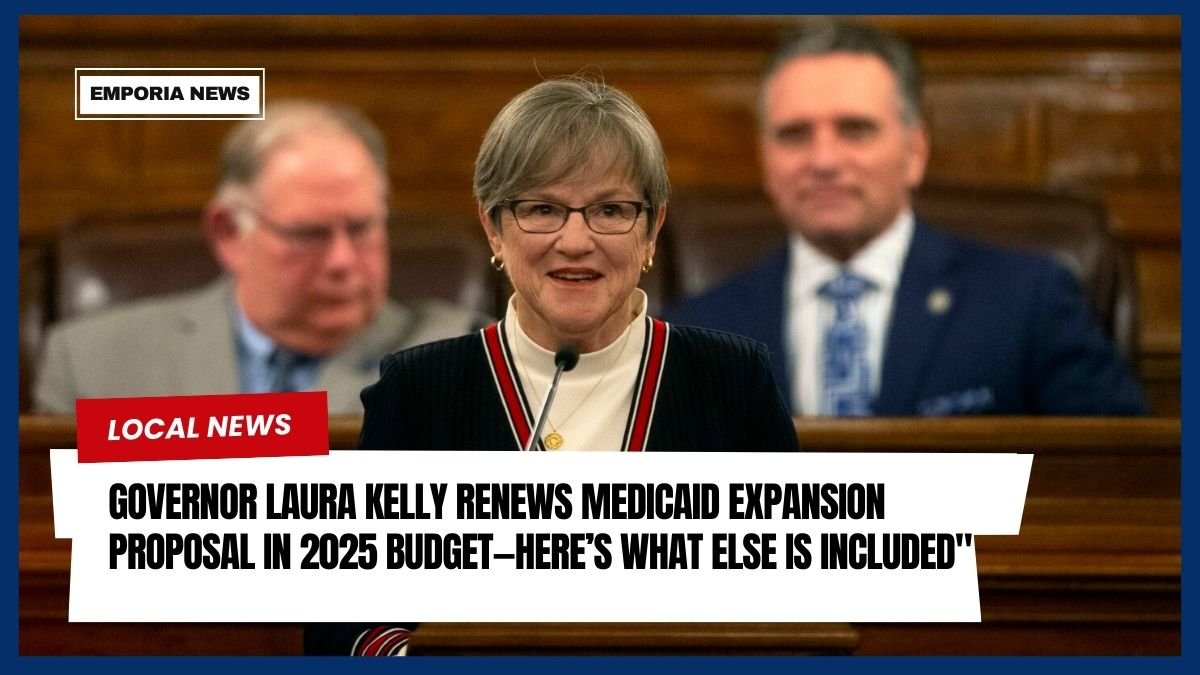Governor Laura Kelly is prioritizing fiscal prudence in Kansas, emphasizing the careful allocation of taxpayer dollars. Her proposed budget for 2025 reflects a minimal 0.7% increase over the previously approved budget, underscoring the state’s financial constraints and the need to avoid significant expansions in government services.
Budget Challenges and Future Projections
The Legislature’s $2 billion tax cut, passed last year, has introduced uncertainty. Its full impact won’t be evident until tax filings conclude in April, with extended filings potentially delaying clarity until October. Additionally, revenue projections for upcoming years show a downward trend.
Adam Proffitt, Kansas’ budget director, warned that the ending balance for fiscal years 2028 and 2029 could decline substantially without intervention.
“The governor’s focus on limiting spending increases is critical to addressing these challenges,” Proffitt explained.
Legislative Oversight
Republican lawmakers are equally cautious, scrutinizing agency budget increase requests during recent hearings. Their approach aligns with the governor’s restrained fiscal strategy.
Governor Kelly’s full budget proposal, which prioritizes water preservation and aiding families on medical waitlists, is available online for public review.
Key Proposals in Gov. Kelly’s 2025 Budget
Medicaid Expansion: A Longstanding Priority
Expanding Medicaid remains a cornerstone of Kelly’s agenda. Her proposal aims to provide healthcare access to 150,000 Kansans, aligning Kansas with 40 other states and Washington, D.C., that have already adopted Medicaid expansion.
Kelly argues that Medicaid expansion would be financially self-sustaining, unlocking federal funding for the state. Between 2022 and 2025, Kansas missed out on $280 million in potential federal support, which could have funded property tax relief.
The 2024 Kansas Speaks survey reveals that 72.4% of Kansans support Medicaid expansion. However, Republican leadership has blocked progress. House Speaker Dan Hawkins, a Wichita Republican, opposes expansion, citing potential costs to the state and concerns about reduced work incentives due to health care access.
Last year, the Kansas Senate attempted a vote on the issue. Although the motion passed 18-17, it fell short of the 24 votes needed for full chamber consideration.
Child Care: Addressing Capacity Gaps
To bolster childcare availability, Kelly has proposed $10 million for the childcare capacity accelerator grant program. This initiative, which previously received $55 million in one-time funding, has facilitated the creation of 5,655 new child care slots statewide.
Despite these efforts, Kansas still faces a significant shortfall. Child Care Aware of Kansas estimates the state lacks 80,000 childcare slots, with current providers meeting only 45% of the demand.
Education: Investing in Kansas’ Future
Kelly’s education proposals emphasize funding for special education, free meals for students, and medical scholarships.
- Special Education Funding: Kansas law mandates that the state fund 92% of special education services, yet projections for 2025 estimate only 75.4% funding. Kelly’s budget includes a five-year plan to bridge this gap.Republicans argue that existing school funding is sufficient to cover these costs, disagreeing with the governor’s assessment.
- Free Student Meals: Kelly seeks to eliminate meal copays for nearly 36,000 students on reduced-price lunch plans. The proposed $5.5 million allocation would remove the 40-cent lunch and 30-cent breakfast copays.
- Medical Scholarships: The budget includes $2 million to expand the University of Kansas Medical Center student loan program and $2.2 million for osteopathic medical scholarships, aiming to address the state’s healthcare workforce needs.
Key Budget Allocations
| Category | Proposed Funding | Purpose |
|---|---|---|
| Medicaid Expansion | Cost TBD (Federal Support Offset) | Expand health care to 150,000 Kansans |
| Child Care Grants | $10 million | Increase child care capacity statewide |
| Special Education Funding | 5-year phased increase | Meet the mandated 92% funding for special education |
| Free School Meals | $5.5 million | Eliminate meal copays for 36,000 students |
| Medical Scholarships | $4.2 million | Support medical and osteopathic students |




